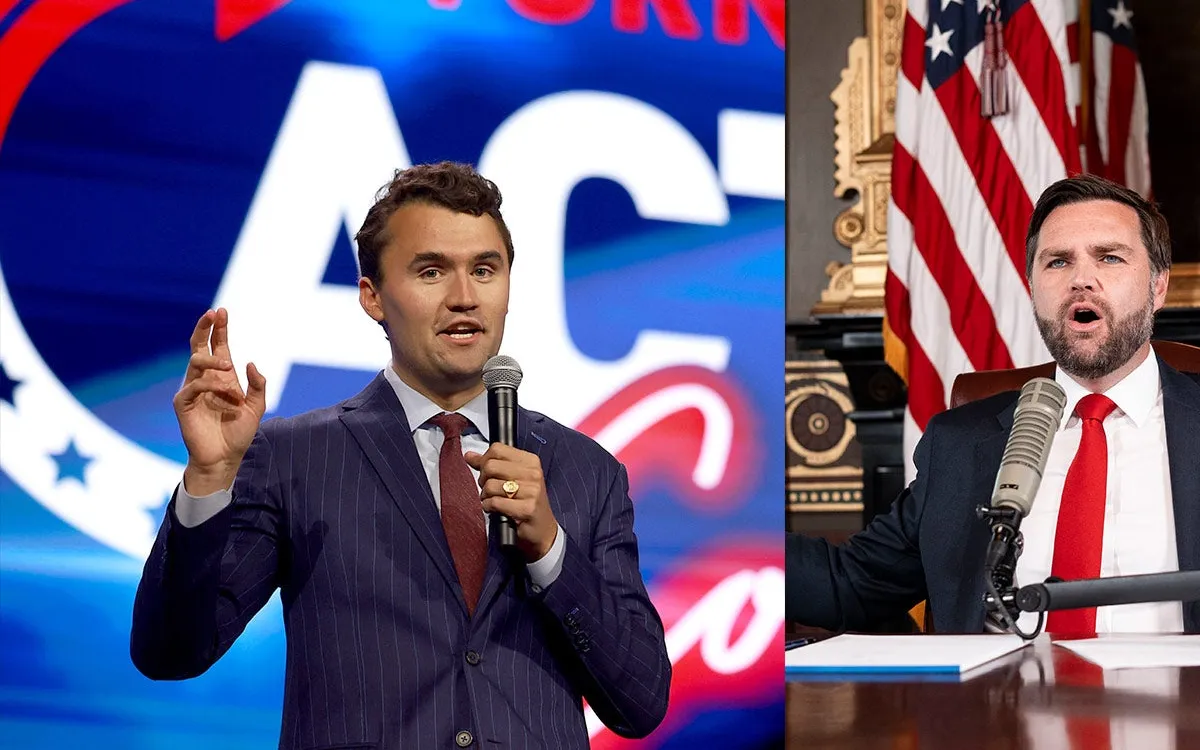
In a poignant tribute to the late Charlie Kirk, Vice President J.D. Vance hosted the fourth memorial episode of The Charlie Kirk Show from his White House office. This special broadcast aired at noon on Monday, featuring an array of influential guests, including White House Deputy Chief of Staff Stephen Miller, White House Press Secretary Karoline Leavitt, Health and Human Services Secretary Robert F. Kennedy Jr., White House Chief of Staff Susie Wiles, and conservative media icon Tucker Carlson. The episode aimed to celebrate Kirk's contributions to the administration and the broader conservative movement.
Throughout the two-hour show, Vance and his distinguished guests reflected on Kirk’s impressive political skills and his unwavering commitment to unifying the MAGA movement. They characterized Kirk as an idealist, a friend, and a compassionate individual, emphasizing how his presence empowered those within the movement. “He made you believe more in yourself,” Miller remarked, recalling how Kirk inspired him during critical moments of his political career.
Additionally, Kennedy reminisced about his initial hesitance taking on the role of HHS secretary, stating that Kirk's encouragement ultimately led him to accept the position. “By the end of the interview, I’d felt like I’d met a spiritual soul mate,” Kennedy shared, emphasizing the profound impact Kirk had on his perspective.
As the episode neared its conclusion, however, the tone shifted dramatically. Vance delivered a stark closing monologue, asserting that the nation must confront a significant issue of organized, widespread terrorist violence from the left. “This is not a both-sides problem,” Vance declared, indicating that one side posed a “much bigger and more malignant problem.” His ominous remarks suggested that achieving unity was impossible with individuals he accused of fostering violence.
Vance's comments included blame directed at liberal journalists and Democratic donors whom he held responsible for Kirk's tragic death. He promised that in the coming months, efforts would be made to “explore every option to bring real unity to our country and stop those who will kill Americans because they don’t like what they say.” This shift marked a stark contrast to the earlier discussions centered around Kirk's legacy of tolerance and generosity.
Hints of Vance's darker narrative had been present earlier in the episode, as he hinted at strategies for dismantling what he described as the “incredibly destructive movement of left-wing extremism.” He claimed that Kirk's murder had galvanized people, citing that “focused anger, righteous anger directed for a just cause is one of the most important agents of change in human history,” according to Miller.
Vance and Miller elaborated on their belief that the left had contributed to a domestic terror movement, listing various organized efforts they claimed facilitated violence. However, specific evidence to support these assertions was lacking. Instead, Vance equated critical speech with violent speech, framing his arguments within a broader narrative of political violence.
In a controversial segment, Vance referred to an article from The Nation that critiqued Kirk’s political legacy, accusing the publication of “lying about a dead man.” He argued that leftist institutions had distorted Kirk's words to justify his murder, labeling this behavior as “soulless and evil.” This rhetoric exemplified a broader attempt to link critical discourse to the justification of violence, raising concerns over the implications for free speech.
Vance's concluding remarks emphasized a call to action, suggesting that there should be accountability for those who celebrate Kirk's murder. He urged viewers to report anyone who publicly expressed joy over Kirk's death to their employers, further blurring the lines between political discourse and personal accountability. His assertions echoed a larger narrative among conservatives, framing critical political speech as inherently dangerous.
In closing, Vance invoked spiritual themes, urging Americans to “put on the full armor of God” and commit to the cause for which Kirk dedicated his life. “To rebuild a United States of America, and do it by telling the truth,” he concluded, leaving listeners with a sense of urgency about the political climate and the need for unity amidst division.
The episode not only served as a memorial for Charlie Kirk but also highlighted the ongoing tensions in American politics, raising questions about the nature of discourse and the potential for political crackdowns in the name of unity and safety.